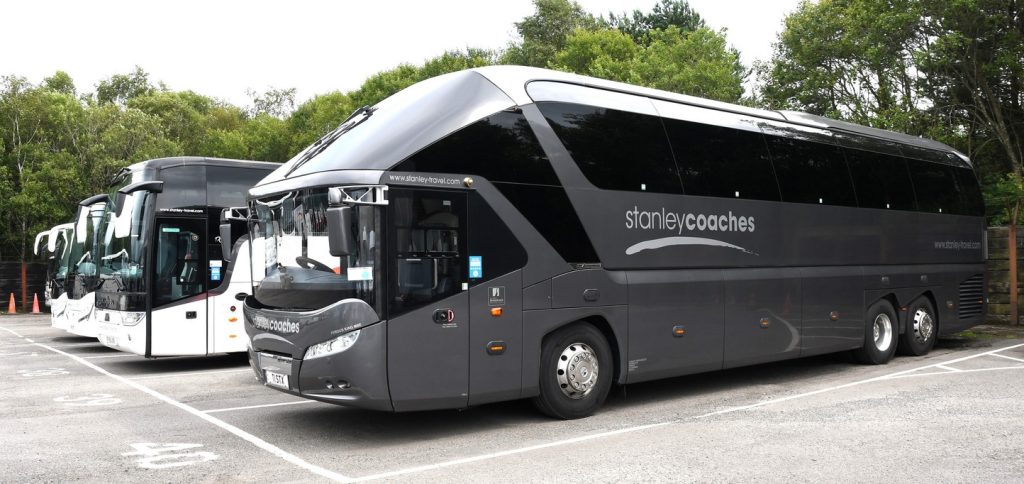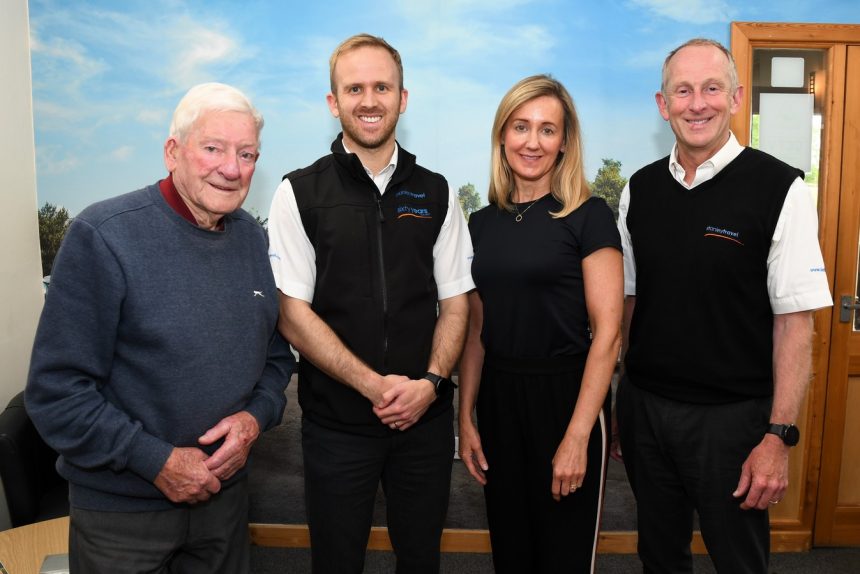Family-owned Stanley Travel is adjusting to the recent retirement of one of its directors, one of the best known names in the industry. But what does that mean and what does the future hold?
County Durham is well known for its mix of scenic splendour and industrial heritage. Located 10 miles from Durham and 12 miles from Newcastle-upon-Tyne, and close to the edge of the North Pennines, the former mining town of Stanley is home to well respected north east England operator Stanley Travel. Founded by Robert and Ann Scott in 1961, initially as a taxi operator, then minibus operator, then full-size coach operator, today, under the direction of their son Andrew, and grandson Gavin, the business is thriving.
The company’s office can be found in Eden Terrace, a row of former miners’ terraced houses. To the rear is Oxhill Farm, a farm originally owned by Robert Scott’s father where pit ponies were trained and looked after.
Stanley Travel operated from the farm until 2016 when a new, fully equipped maintenance facility and operating base was opened at Annfield Plain, about a mile away from Oxhill Farm and the current office. Located up the hill from the office sees the base referred to as ‘Top Yard’ and the office itself as ‘Bottom Yard’.
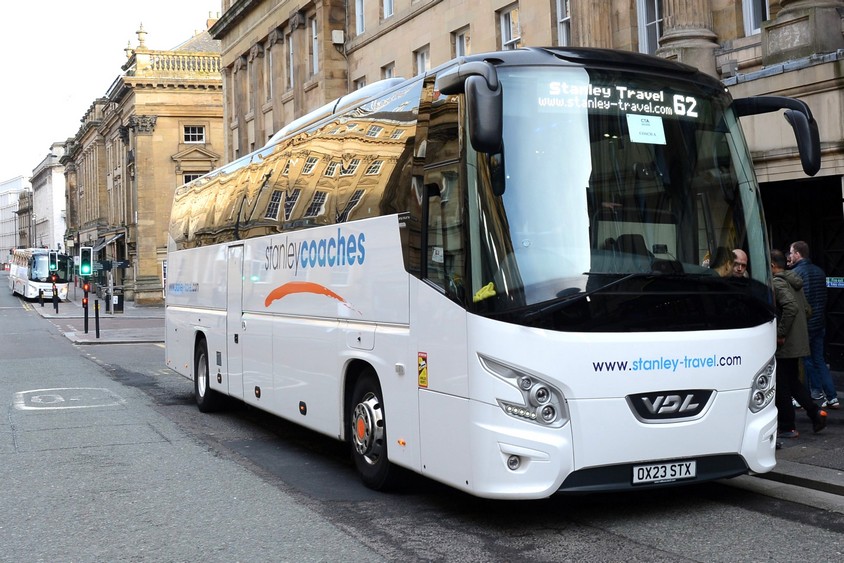
A mix of work
Stanley Travel has two main operating brands: Stanley Coaches and Stanley Taxis, the latter also including Durham City Taxis. There’s a fleet of 41 coaches and buses. The taxi fleet comprises 85 cars, 34 of which are owned by Stanley Travel with the remainder being owner-drivers who pay a weekly rent to access the work circuit.
The taxi business is managed from a taxi office at Stanley bus station. On the coach side there’s an annual programme of around 50 day trips to destinations across the north of England and up to Edinburgh and Glasgow. Seven local bus services are operated, a mix of commercial and contracted services, including Monday to Saturday town and village services and a sizeable number of open school services.
Work is carried out for FlixBus on a route linking Newcastle across to Leeds and Manchester, and for Wakefield-based Palmer Holidays. Coaches carry the respective liveries.
Then there’s the Bike Bus, offering bike and rider transport, and a PCV training facility. This is used for both in-house requirements and also by Go-North East and Arriva North East for their driver training needs.
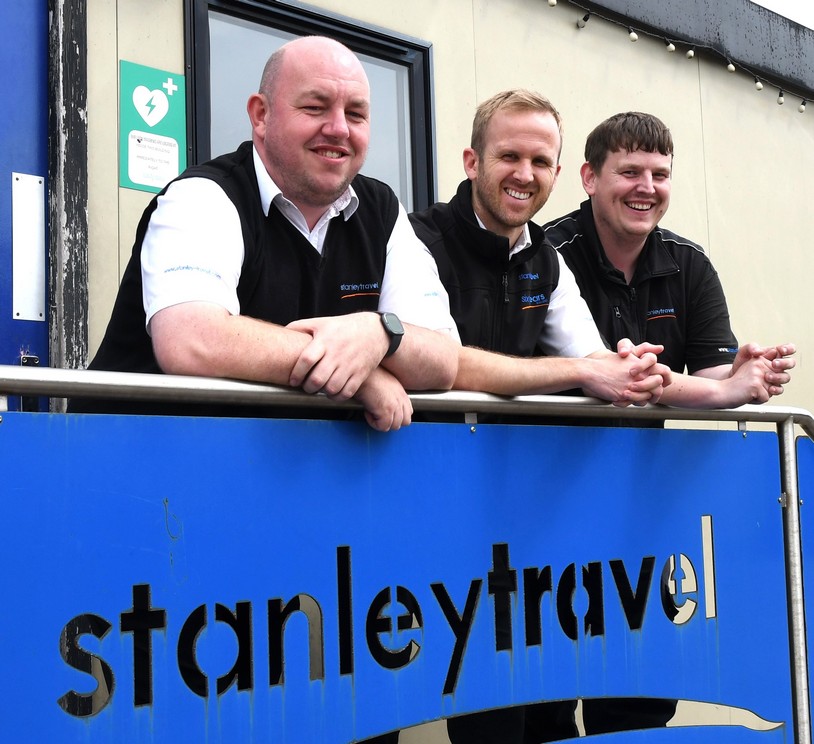
Early retirement
In May this year the news came that industry stalwart Ian Scott, who together with his younger brother Andrew had led the company since Robert and Ann stepped back in 2017, was taking early retirement. Andrew completed the share purchase of the business and in June, Andrew’s son, Gavin, who has been with the company since 2009, was made a director.
Meeting with Andrew and Gavin there’s an opportunity to understand the implications of Ian’s retirement.
“We weren’t expecting Ian to retire so soon but it was the right thing for him to do,” says Andrew.
“We’ve tweaked the roles and responsibilities of our other senior managers. Gavin is one of our two registered Transport Managers. The other is Michael Stephenson, who focuses on the engineering side of the business. He’s been instrumental in delivering a smooth and efficient transition since Ian’s retirement. Andrew Goodchild, who’s been with us for some 20 years, is Operations Manager. My wife, Susan, is Accounts Manager and Sean Mountain is our Depot Manager. We have an engineering team of six, including a full-time electrician. We’re a small team, but an efficient team.”
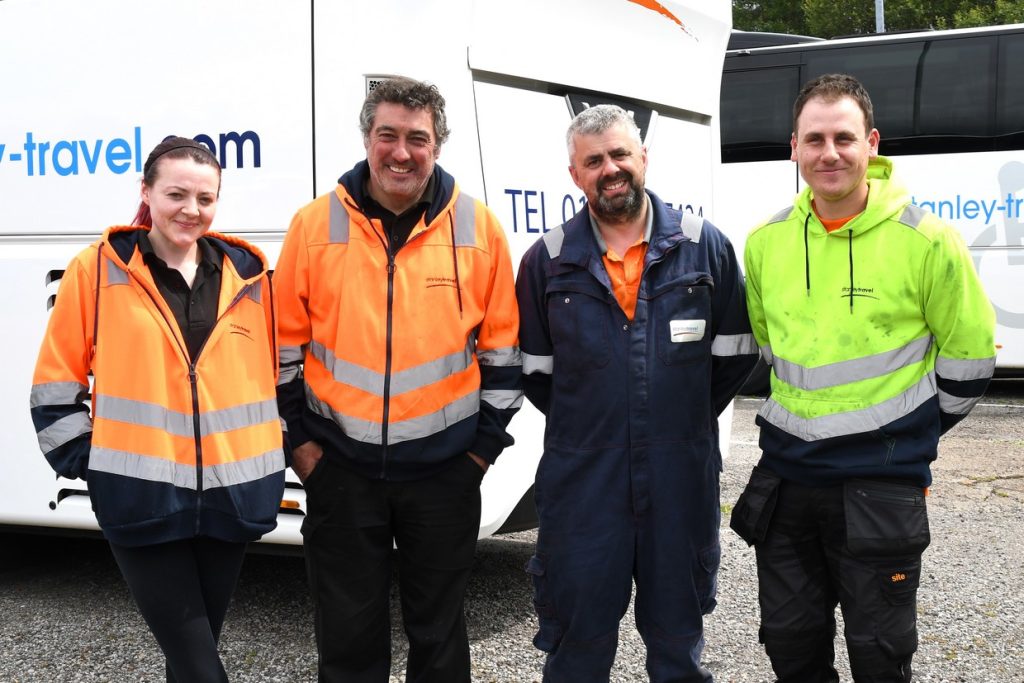
Everyone takes ownership
“The most important element of all of this though is ensuring there’s a crossover in some responsibilities so that we can all do bits and pieces of everyone’s job if needed. For example, our sales and operations functions are done as one. That means that if a customer rings, whoever takes the call is able to deal with the enquiry immediately. Everyone takes ownership.
“In the past, if the person with the responsibility for taking a private hire booking wasn’t around we would probably have had to get back to the customer. Now, and let me use Gavin as an example, if he takes a call, and because he’s across both private hire and operations, he can suggest a tweak to the customer to ensure the booking fits into our schedule, or vice versa.
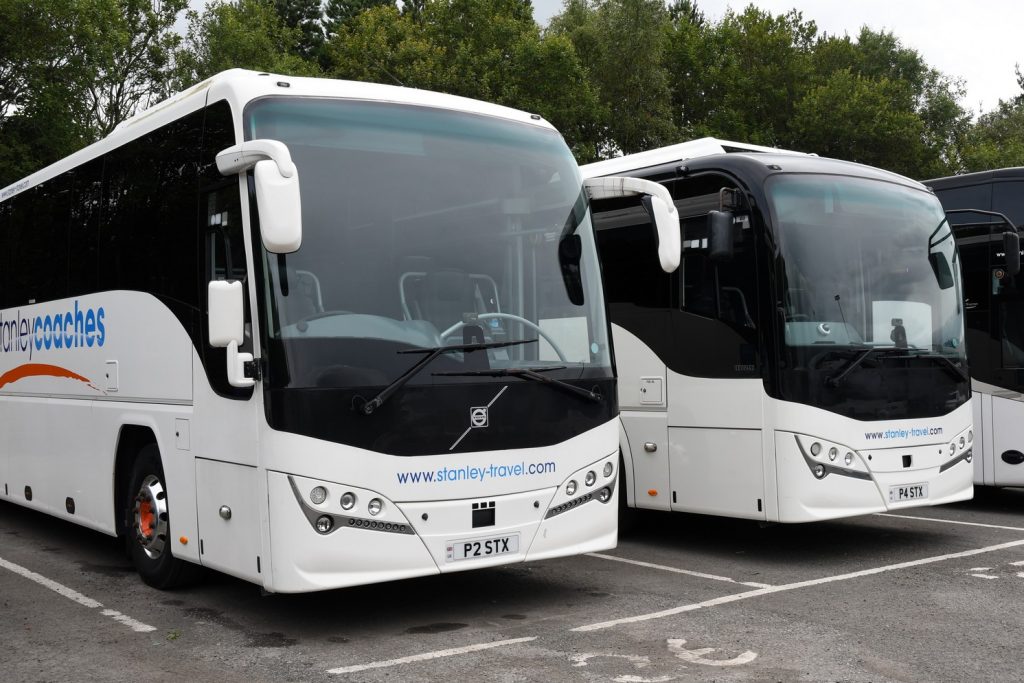
“We aim to be agile, flexible and responsive. With just a few of us we can weigh up the options and act swiftly. We’ve ditched paper maintenance records in favour of digital. That was quite a step but it means that our system is now accessible by all the management team. If someone isn’t available and something needs doing, then another member of the team can step in. Post COVID-19 we introduced new systems including a new parts ordering process and remote clocking-on for drivers, a system that feeds directly into payroll. We use a suite of software supplied by Distinctive Systems and Samsara telematics for vehicle and driver monitoring and tracking.”
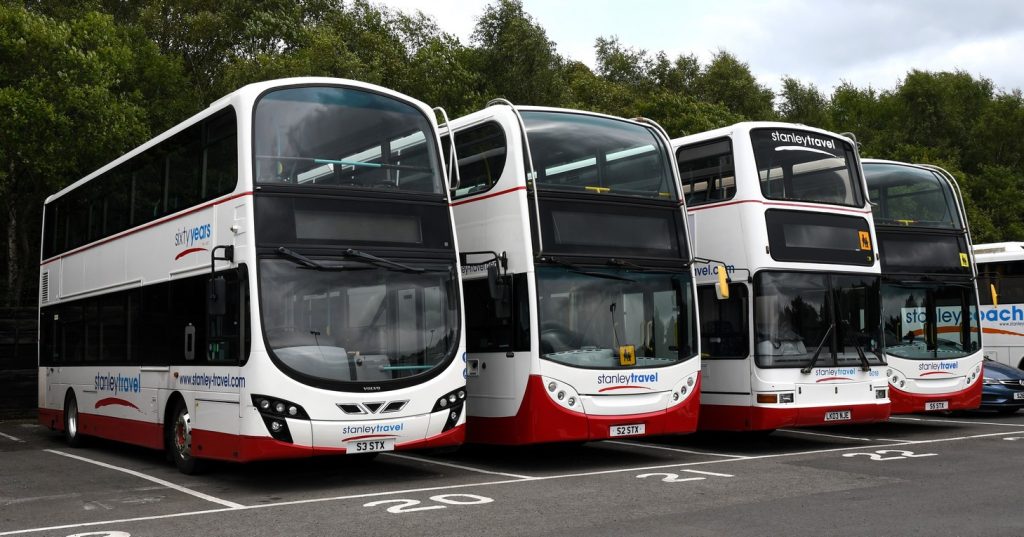
Looking after staff
But regardless of the management structure, driver retention and recruitment is crucial to the success of the business. Listening to Andrew and Gavin it seems that Stanley Travel is in the proverbial good place.
“We currently have 38 drivers,” explains Gavin. “Apart from two they’re all full-time. We used to have casuals but the need for them to manually enter their ‘other work’ for tachograph compliance put them off. We’ve only lost five drivers in the last three years, mainly through retirement. The challenge of course is attracting younger drivers. We pay competitively, treat our staff well and look after them.
“We give a good amount of notice on upcoming work and try to rota drivers where possible to help them plan their home life. We pay for their Driver CPC training and give them an annual family pass for our popular local visitor attraction, Beamish – The Living Museum of the North. On their birthday, each member of staff receives an Amazon voucher and we also offer free breakfasts from a specially hired catering van that comes to the depot from time to time. Overall, we’re generally a younger management team, so I feel we can relate more to younger drivers.”
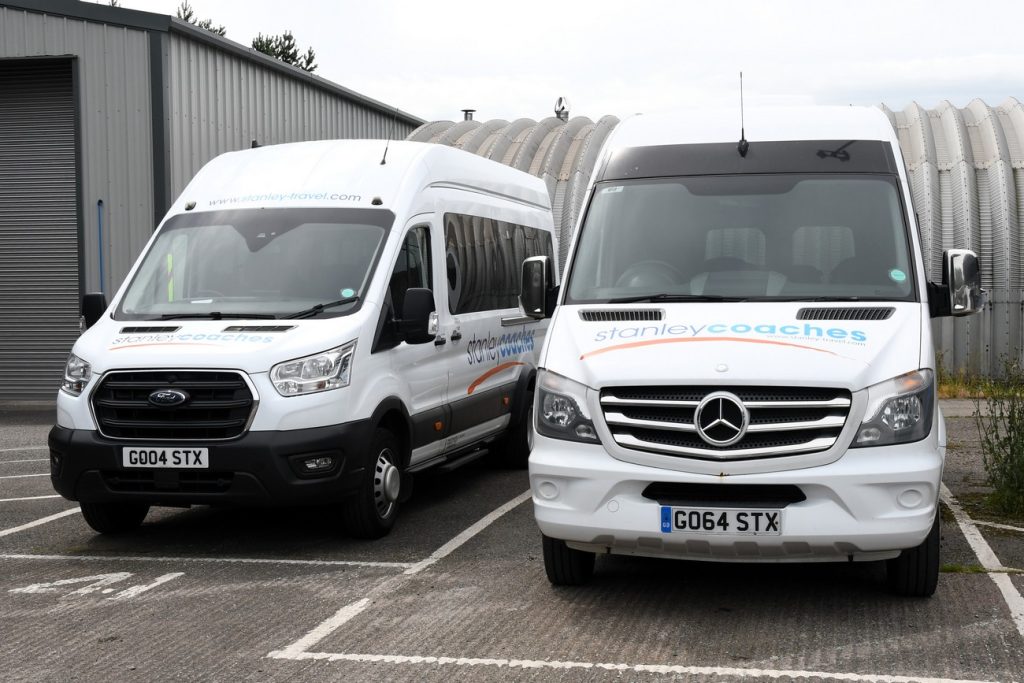
Andrew echoes the sentiment.
“The input from Gavin and Michael (Stephenson) has helped me embrace new technologies,” he says. “My door is always open, but I do want to be closer to the coal face, so to speak. Our two sites work well but we’re moving forward with building a new office facility at Top Yard. That will bring everything together and should be completed in the next two or three years.”
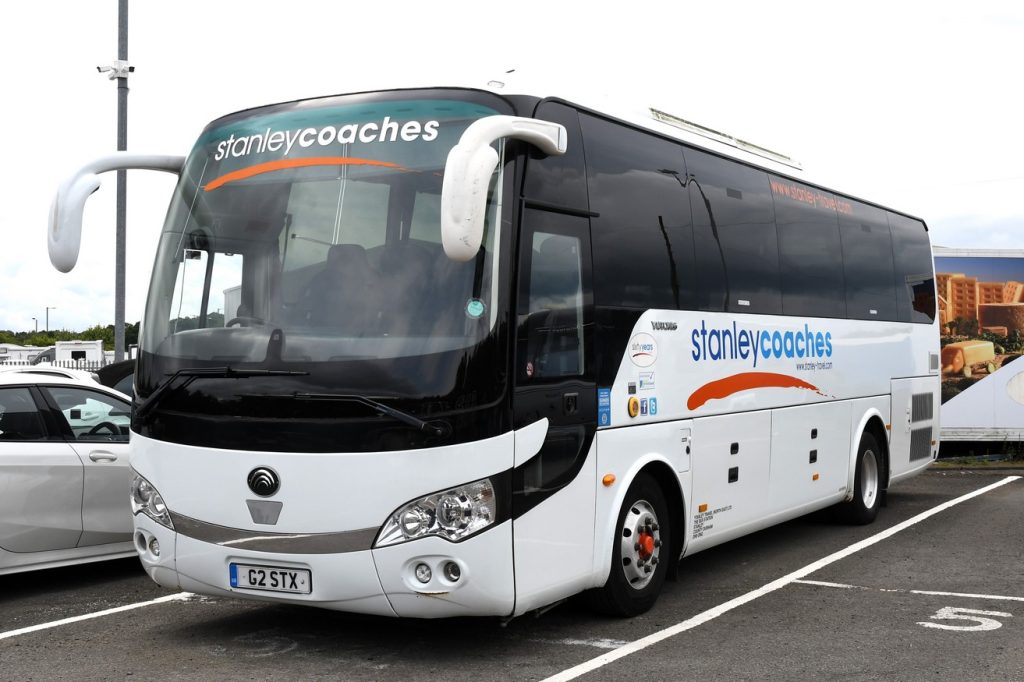
Yutong and VDL
Fleet-wise, Stanley Travel has just taken delivery of a Yutong GT12, with a third Yutong TC9 and a VDL Futura 2 due later in the year.
“We like the Yutongs,” explains Andrew. “They offer consistency and we can get them quickly. The support from Pelican Bus and Coach is also very good. The Yutongs are PSVAR-ready. We decided not to have lifts at this stage because they restrict luggage space. We have other lift-equipped coaches as needed. We have five VDL Futura 2 coaches in the fleet already. The VDL is a quality product.”
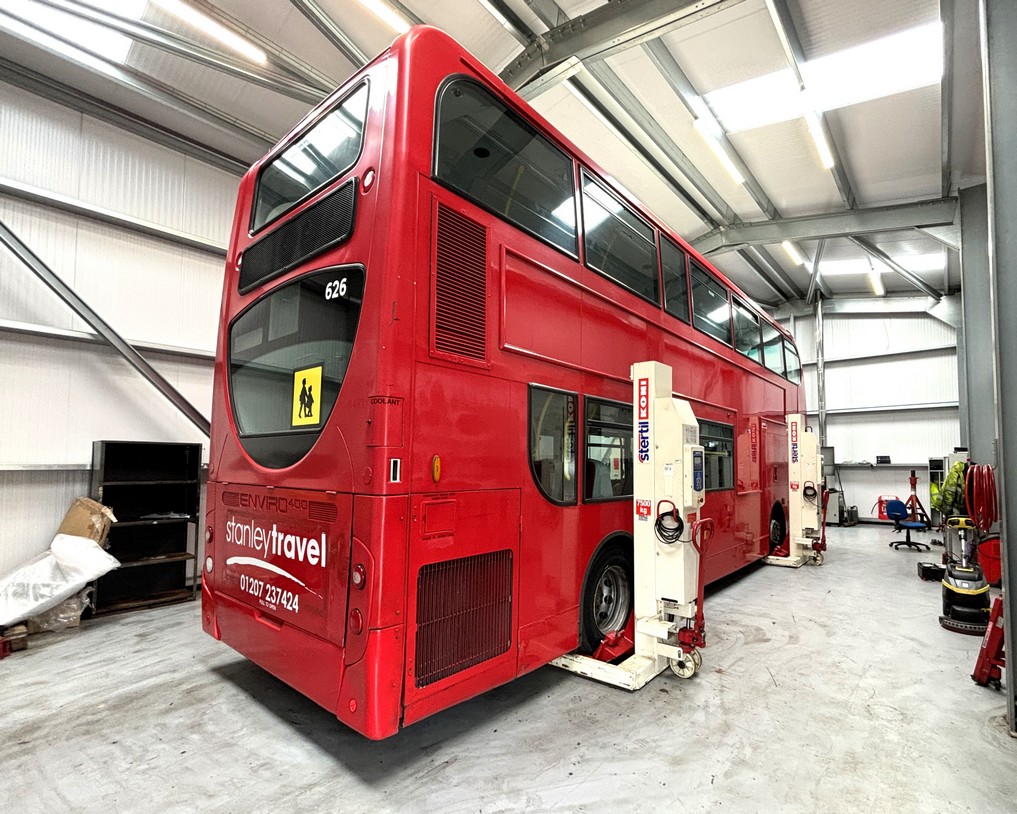
Looking to the future, Andrew and Gavin are optimistic.
“Our net profit for the first six months of 2024 is 80% up compared with the same period in 2023,” says Gavin. “We’ve reduced costs and improved utilisation. Turnover across our taxi business is 40% up over the same period thanks in part to a significant contract we have with the NHS for non-blue light work and a strong collection of home to school contracts.”
Andrew echoes the positivity.
“Consistency is key and everyone knows what they’re doing,” he says. “Profit comes off the back of consistency. The whole team has bought into this. For myself, no plans to retire, yet. I’m really proud of what Gavin is achieving. He’s becoming the face of the business. With the changes in management responsibilities I’m moving away from being hands-on to a more strategic role. But I’ll still be doing some driving. Some things never change!”
